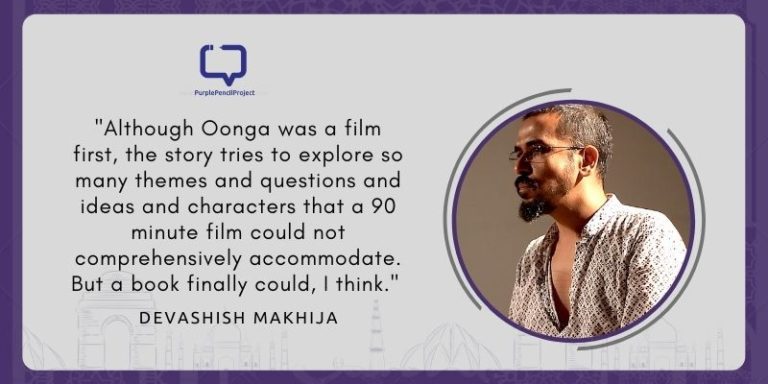Akshaya Ganesh reviews The Kaunteyas: Queen Kunti’s Mahabharata by Madhavi S Mahadevan calling the writing descriptive.
My obsession with historical fiction goes a long way. Being a scholar in Sanskrit, I remember how my mother used to tell stories from Indian mythology to me and my brother. My adoration and appreciation for such epic tales started from there. With a strong admiration for mythological tales, I started exploring the world of Indian literature, reading book after book, author after author. The genre is now seeing new authors emerging with refreshing new ideas of how these classic epics can be retold with more intrigue and dynamics.
With so many gods and goddesses, queens and kings, princes and princesses, sages, rakshasas, and a never-ending universe of magic, myth, and destiny, it only kindles your excitement to pick up the next book that gratifies your thirst for imagination and make us hungry for more such tales of the ancient times. I’ve read multiple retellings of Mahabharata, each from a different perspective, and the more I read, the more fascinating it gets, the more detail it gives.
We encourage you to buy books from a local bookstore. If that is not possible, please use the links on the page and support us. Thank you.
“Men’s stories are the bones of a bygone age, sanctified as relics, preserved in stone. Women’s stories are written in water. Yes, women’s tales, too, have been told by men, but with an important difference: they are cautionary. They warn men that women are clever, conniving, deceitful, and, frequently, the cause of dissension. They tell women how to be and, more importantly, not be. A common theme is retribution for breaking rules that are invariably man-made.”
The prologue of the book is the finest and most thought-provoking introduction for the book that takes you through one of the mighty women of the epic tale Mahabharata. Spanning across cultures and civilizations, Indian mythology, at the heart of it, is a treasure trove of ancient stories that reflect the beliefs, values, and societal structure of those times. However, one recurring aspect that has been scrutinized is the representation of women in these tales.
They depict women in limited roles, often overshadowed by their male counterparts and confined to roles such as wives, mothers, daughters, or objects of desire. Yet, beneath the surface are influential female figures whose stories hold more profound significance. Women whose stories need to be told, heard, and read.
In recent years, there has been a growing interest in reexamining and reinterpreting mythology from female perspectives. The Kaunteyas is one such book uncovering hidden stories and amplifying the voice of one of the powerful queens of the Kuru clan, Kunti, and shedding light on her resilience and courage.
The many facets of Queen Kunti in Mahabharata
The Mahabharata is one of the two major Sanskrit epics of ancient India and tells the tale of the great Kurukshetra war between two rival families, the Pandavas, and the Kauravas. From her childhood to becoming the queen of Hastinapur to becoming the mother of the greatest warriors of history, The Kaunteyas is out and out a mesmerizing tale of love, ambition, sorrow, and the enduring power of Kunti. This retelling explicitly explores the perspective of Queen Kunti, the mother of the Pandavas, who plays a pivotal role in the events unfolding.
The Kaunteyas: Queen Kunti’s Mahabharata delves into her journey as a young princess who becomes a mother at an early age, her struggles as a single mother, and her unwavering devotion to her sons. It throws light into the tale of Kunti: her relationship with her foster parents, how she received the boon that granted her sons, her swayamvar followed by her marriage to King Pandu of Hastinapur, her relationship with her in-laws and her desire to keep her sons solid and united.
While most of her childhood is spent wondering why she is the way she is, a constant air of mystery surrounds her. Very little attention is given to the relationships between Kunti and the characters until she gets married. Throughout the story, Queen Kunti faces various challenges and tests of her character. She must navigate political intrigue, family rivalries, and the internal conflicts within her heart.
The book offers a fresh perspective on the well-known story of the Mahabharata, shedding light on the complexities of its characters and the moral dilemmas they face. It explores themes such as love, sacrifice, duty, and the consequences of one’s actions. Overall, this retelling provides a compelling and thought-provoking portrayal of Queen Kunti’s journey and her role in the epic Mahabharata.
The mythical Odessey
“Death is important to a man, but survival is more important to a woman.”
This quote stands true as we maneuver through Kunti’s life. The need and importance of survival is reflected in her decisions and every little step she takes. I really loved how Madhavi has humanized Kunti as a sweet daughter, a doting mother, and a wife and highlighted the experiences and nuances of each role and what drove Kunti forward with much endurance every time a mishap happens.
The writing was flawless, with beautiful metaphors and irony. An instance where Kunti talks to Lord Surya for having called him mistakenly, and she cannot bear his child, not out of wedlock. The author subtly hints at how the child can be hailed as a Kaunteya after his mother.
“Your son will have your glory, but will he have your name? By what name will he be called?
The look he sent me was full of irony, would it be wrong if he was called by your name – as Kaunteya?”
Even today, children take the name of their fathers, and that one statement was enough to make you think. We women had the power to change it, yet for some reason, we never did. What is wrong with the child taking its mother’s name? The book contains instances that make you ponder and rethink certain aspects of your life.
The author also beautifully chalks out the isolation Kunti feels right from the early days of her childhood. She has constantly battled the feeling of abandonment from childhood and has always longed to call something/someone her home.
The book is quite descriptive and delves into the depths of Kunti’s emotions and feelings during crunch situations. While the pacing might not suit all readers, those who appreciate a descriptive and character-driven narrative with a fresh perspective on ancient myths will surely find themselves enthralled by its beauty and haunted by its truth.
While reading the book, I only had two concerns. One was Kunti’s reason for abandoning Karna wasn’t as impactful as it has to be. Though I understand why she abandoned him as a child, the explanation given is not very convincing, especially coming from Kunti when she was battling her feelings of abandonment by her birth father.
The story also seems to end abruptly. The reader in me wanted to know more about Kunti’s emotions during various stages of the war, losing her grandsons and her eldest son. There could’ve been a proper closure, as it feels like a rushed ending. The book, however, is a delightful addition to my library of mythological fiction.
Have you read this version of Kunti’s Mahabharata? What do you think of it? Drop a comment below and let us know!
As part of our effort to compensate our writers better, we at Purple Pencil Project have launched the #PayTheWriter initiative, where readers can directly show support and appreciation for our wonderful team.
Scan or upload this image on your UPI app, and show them the love 😀
























